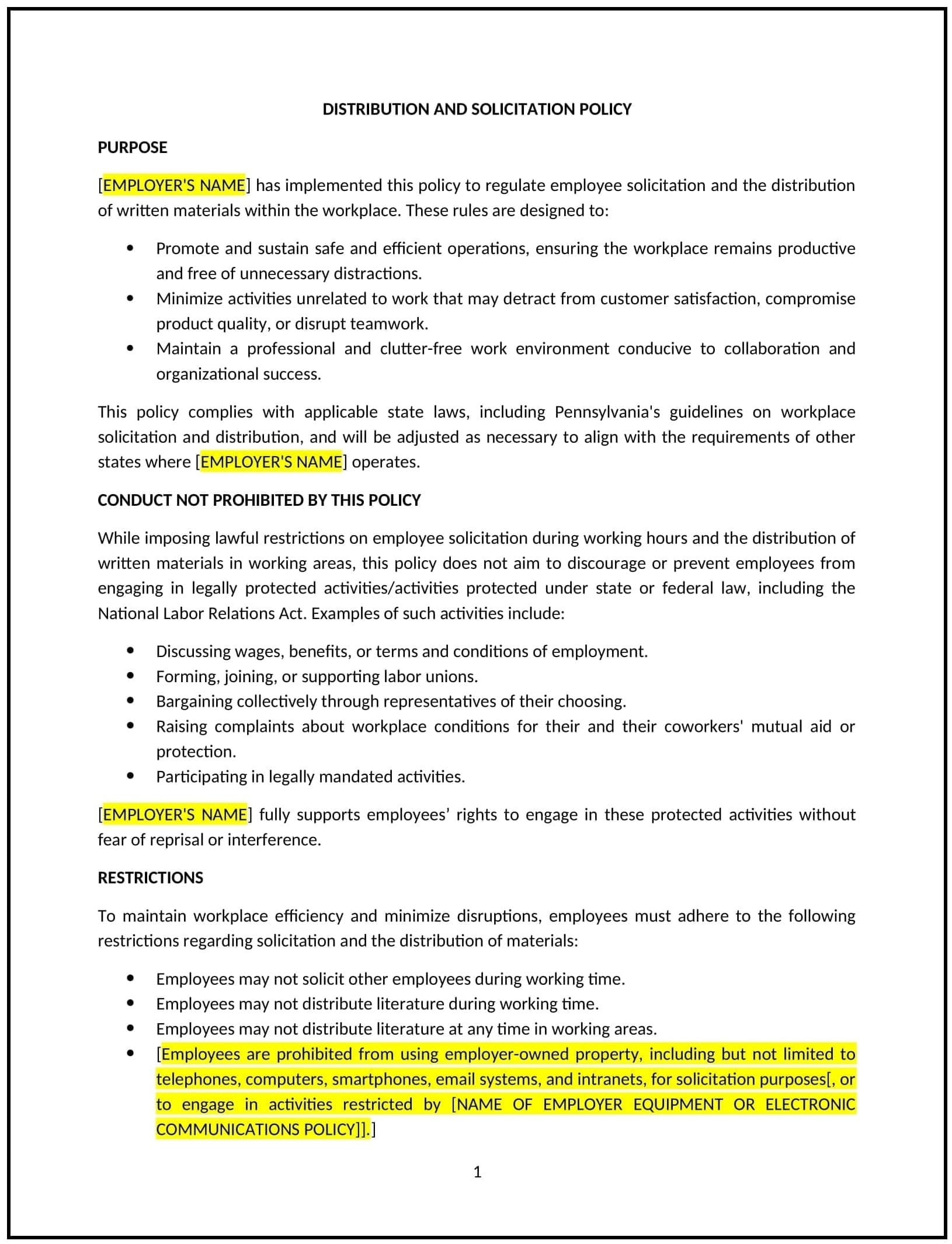Distribution and solicitation policy (Pennsylvania): Free template
Got contracts to review? While you're here for policies, let Cobrief make contract review effortless—start your free review now.

Customize this template for free
Distribution and solicitation policy (Pennsylvania)
This distribution and solicitation policy is designed to help businesses in Pennsylvania manage activities related to the distribution of materials and solicitation within the workplace. Whether addressing charitable requests, sales activities, or personal fundraisers, this template provides clear guidelines to maintain workplace productivity and reduce disruptions.
By using this template, businesses can establish consistent practices for managing distribution and solicitation while aligning with Pennsylvania labor laws and workplace needs.
How to use this distribution and solicitation policy (Pennsylvania)
- Define activities covered: Clearly specify what constitutes solicitation (e.g., selling goods, fundraising) and distribution (e.g., handing out flyers or promotional materials).
- Establish workplace rules: Identify where and when solicitation and distribution activities are permitted or restricted, such as during breaks or in non-working areas.
- Address third-party access: Include guidelines for managing solicitation or distribution requests from external parties, such as vendors or charitable organizations.
- Outline approval processes: Provide steps for employees or third parties to request permission for approved activities, ensuring consistency and fairness.
- Reflect Pennsylvania-specific considerations: Tailor the policy to address local practices and regulations, such as workplace dynamics in industries like healthcare, education, or retail.
Benefits of using a distribution and solicitation policy (Pennsylvania)
A well-structured distribution and solicitation policy supports workplace productivity and harmony. Here's how it helps:
- Maintains productivity: Reduces workplace disruptions by managing when and where solicitation or distribution can occur.
- Ensures fairness: Applies consistent rules for all employees and third parties, minimizing perceptions of favoritism.
- Protects workplace harmony: Prevents conflicts that may arise from solicitation or distribution activities.
- Supports compliance: Aligns with Pennsylvania labor laws, such as restrictions on solicitation in certain industries or environments.
- Provides clear guidance: Helps employees and third parties understand expectations for workplace activities.
Tips for using a distribution and solicitation policy (Pennsylvania)
- Communicate the policy: Share the policy with employees during onboarding and provide regular reminders to ensure understanding and adherence.
- Define exceptions: Clearly outline any exceptions to the policy, such as charitable fundraising events approved by management.
- Train managers: Equip supervisors to enforce the policy consistently and address violations effectively.
- Monitor activities: Periodically review workplace activities to ensure compliance with the policy and address emerging issues.
- Review periodically: Update the policy to reflect changes in Pennsylvania regulations, organizational practices, or workplace needs.